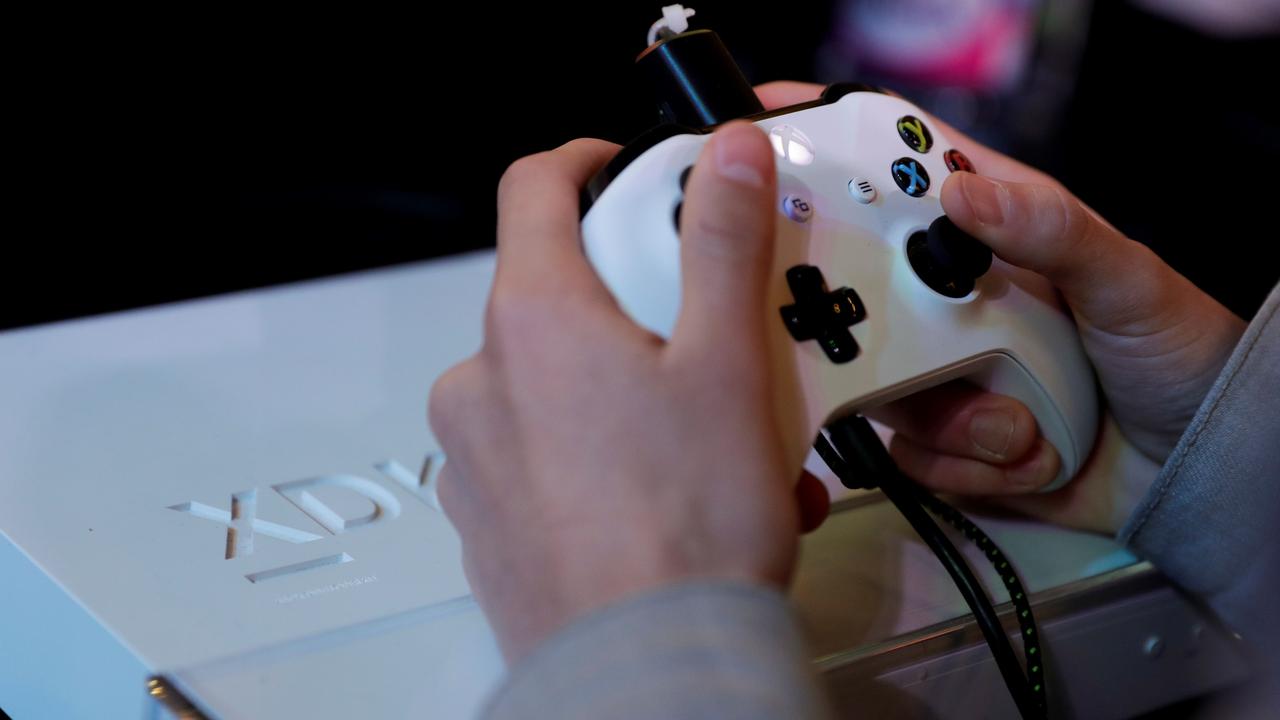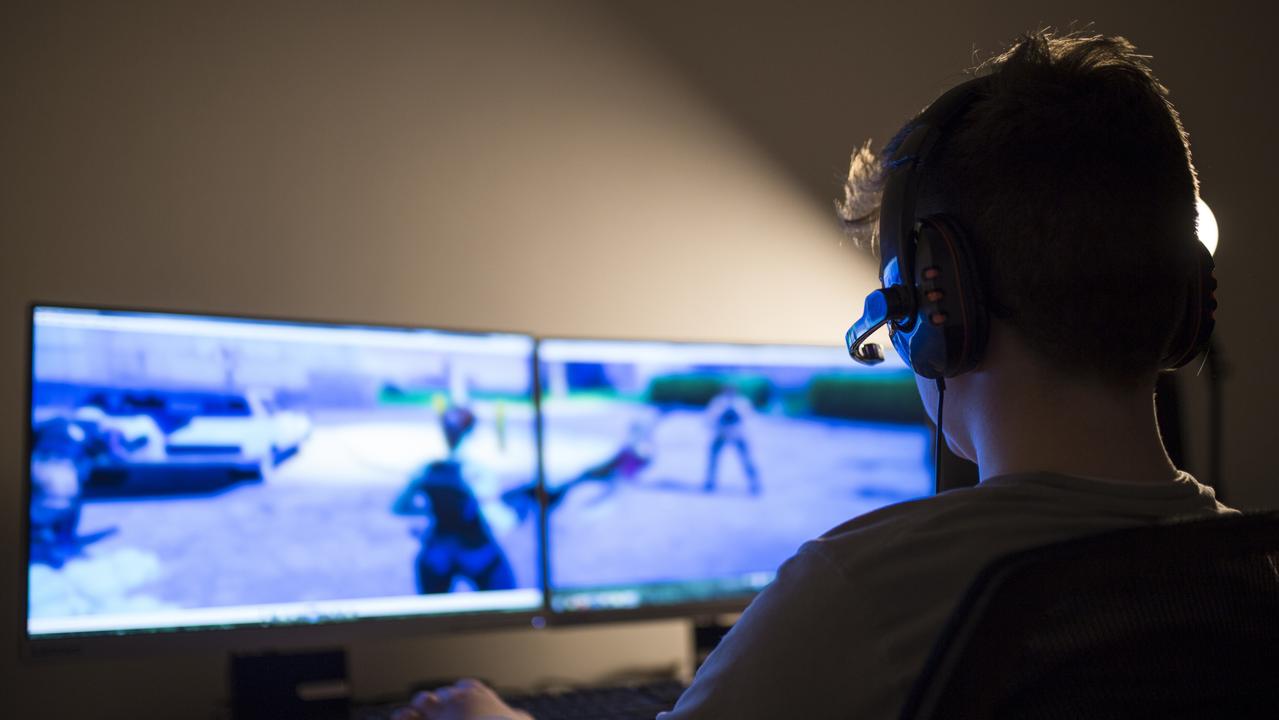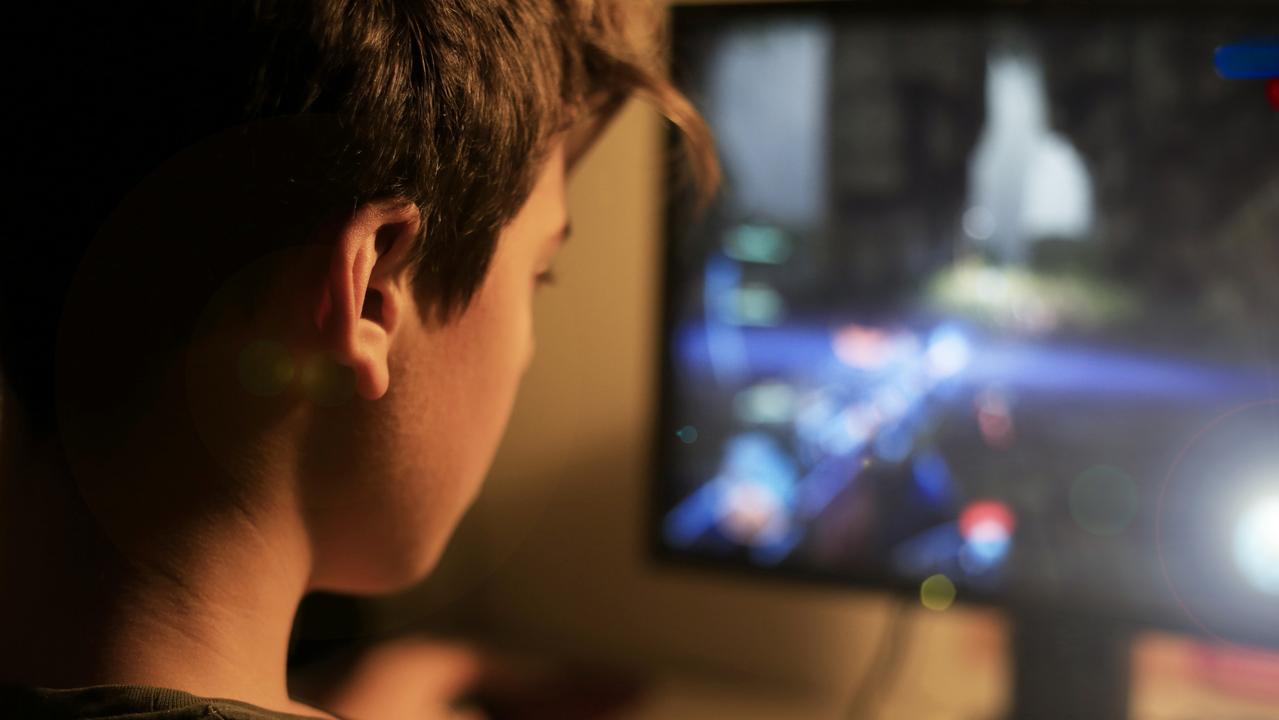Gaming disorder: Gamers may be seeing things that aren’t there
Hardcore gamers are experiencing elements of video games in real life, research has revealed, and Aussies aren’t immune.
Hardcore gamers are at risk of developing a disorder that causes them to hallucinate experiences from video games they are playing, shocking new research has revealed.
Gaming transfer phenomenon, or GTP, is referred to as the “involuntary transfer of in-game experiences to off-game real life in non-psychotic people after prolonged gaming”.
It’s believed to be an offshoot of video game addiction or gaming disorder (GD) as it’s defined by the International Classification of Diseases.
The Royal Australian and New Zealand College of Psychiatrists (RANZCP) met in Western Australia last week to discuss a range of mental health disorders and potential treatments, with GD among them.

Perth was arguably the best place to hold a conference dealing with GD; Fiona Stanley Hospital (FSH), in the suburb of Murdoch, has run a dedicated GD clinic since 2021.
Figures from RANZCP predict up to 10 per cent of Australian youths have GD, with cases growing exponentially since the pandemic.
FSH’s pilot program found GD was often hidden, only being revealed when physicians ask direct questions, and for some can lead to school or university refusal, unemployment, gambling debts, and even behavioural issues like aggression.
It’s caused by a complex mix of different factors like neurodevelopmental and social disorders, but problems at home also play a role.
FSH addiction psychiatrist Kavita Seth in September told Nine News the problems begin when gamers are playing to the point where they themselves are unable to stop and become irritable if someone else tries to stop them.
“They prioritise it over sleep, over having meals, going to school, completing school homework, completing social activities,” Dr Seth said.
“If they are depressed or anxious, or they have some developmental disorder like autism or ADHD, we try and address that as well.”

Some GD patients can develop GTP when gamers start seeing elements of the game, or hearing audio, long after they put down the controller.
Psychologist and postdoctoral psychology researcher Angelica Ortiz de Gortari has covered the topic extensively, with her articles and research collated on her website.
She claims to have coined the GTP term during a study in 2010.
Dr de Gortari says one of the outstanding examples was a 17-year-old gamer in that study who started seeing “health bars” in real life.
“When I really was a hardcore player in WoW (World of Warcraft), when I got my adrenaline pumping, I started seeing health bars above people’s heads,” the gamer said.
Another gamer, Daniel Owens, detailed their experiences on Dr de Gortari’s website.
“I recently experienced this playing Portal 2, exactly as listed in the articles,” he said.
“It was to the point that it interrupted my sleeping patterns. It felt as if my body went to sleep but my mind was still working. It seems to happen in games with frequent sidekick interaction or a narrator.
“I remember specifically on another occasion, after Super Mario Sunshine came out, that I could not sleep for a full night for nearly a week after playing it. That was the worst.
“I’ve never had anything bleed into my waking life though but could see that possibly happening to a person that plays video games more frequently.”

“The involuntary phenomena observed in GTP do not only happen due to playing video games,” Dr de Gortari said.
“However, key factors involved in playing video games (usually for prolonged periods of time) such as sensory overload, high cognitive load, trance states and emotional engagement appear to ease the occurrence of such phenomena.”
A key part of the research is the distinction between things experienced by GTP and psychotic hallucinations, which can lead to a misdiagnosis.
Dr de Gortari said she wanted to “demystify” GTP so the condition wasn’t misinterpreted by the wider medical community.
“The occurrence of GTP invites us to reflect on our vulnerability to the exposure to synthetic stimuli and the challenges that the human mind will affront due to the technology advances that are still to come,” she said.
The ABC’s Australian Story covered GD extensively in a report in March.
They spoke to Macquarie University psychologist Wayne Warburton, an expert in problem gaming.
His research indicated 10 per cent of kids showed signs of “hazardous gaming” and 3 per cent of that group could be classified as having GD.

“The research is pretty clear that with screen addiction it’s quite common for the kids to become quite aggressive and sometimes quite violent when the screens are taken away,” Dr Warburton said.
“I’ve seen kids who are very depressed, very anxious, sometimes suicidal,” he added, pointing to examples where parents have had to take apprehended violence orders against their children.
The idea of video game addiction remains a contentious issue in medical circles, with some experts refusing to acknowledge excessive gaming as an addiction at all.
But one thing the experts can agree on is that if someone is possibly suffering from GD, the matter should be discussed with a general practitioner who may be able to point them to a specialist for treatment.





